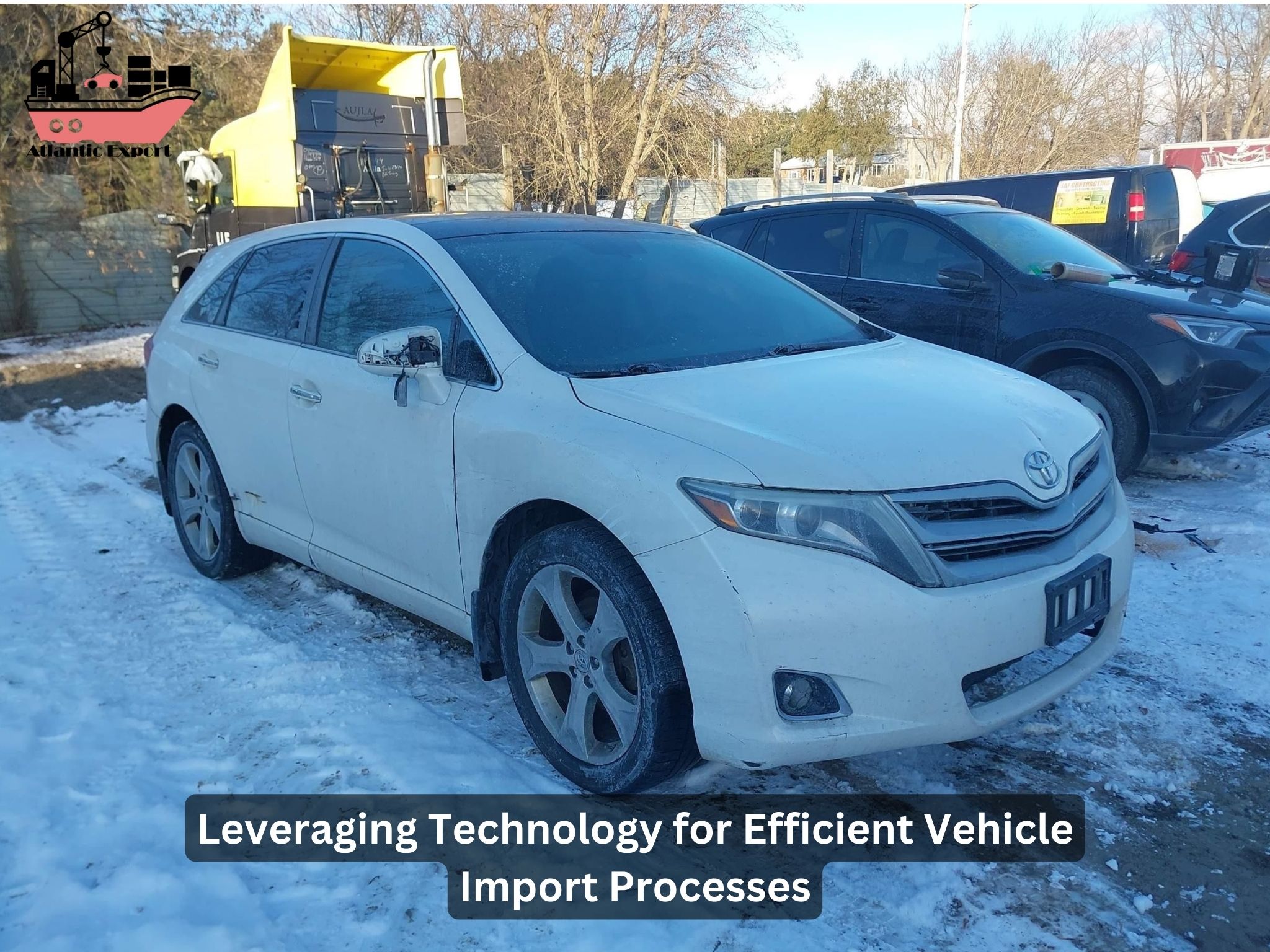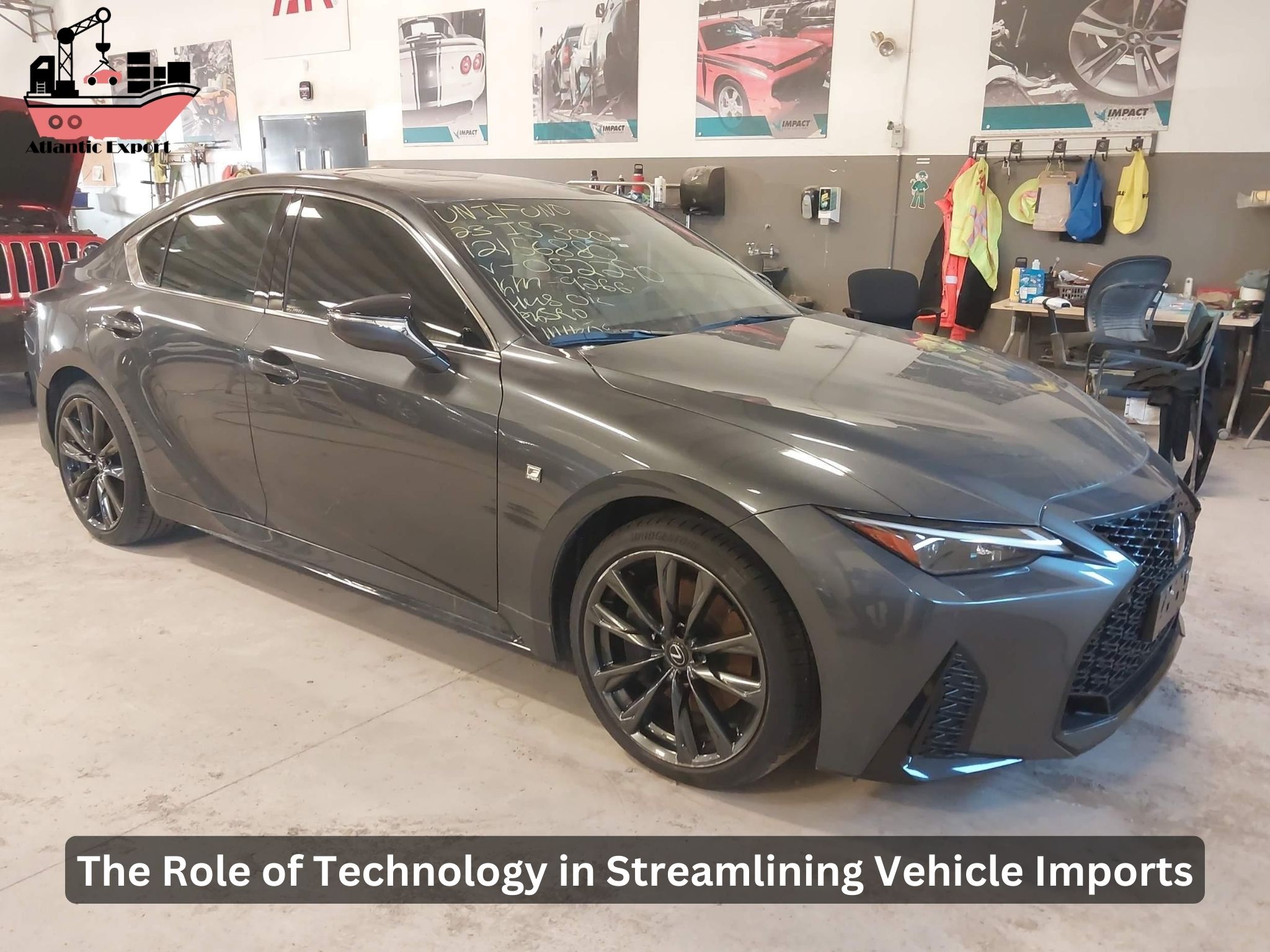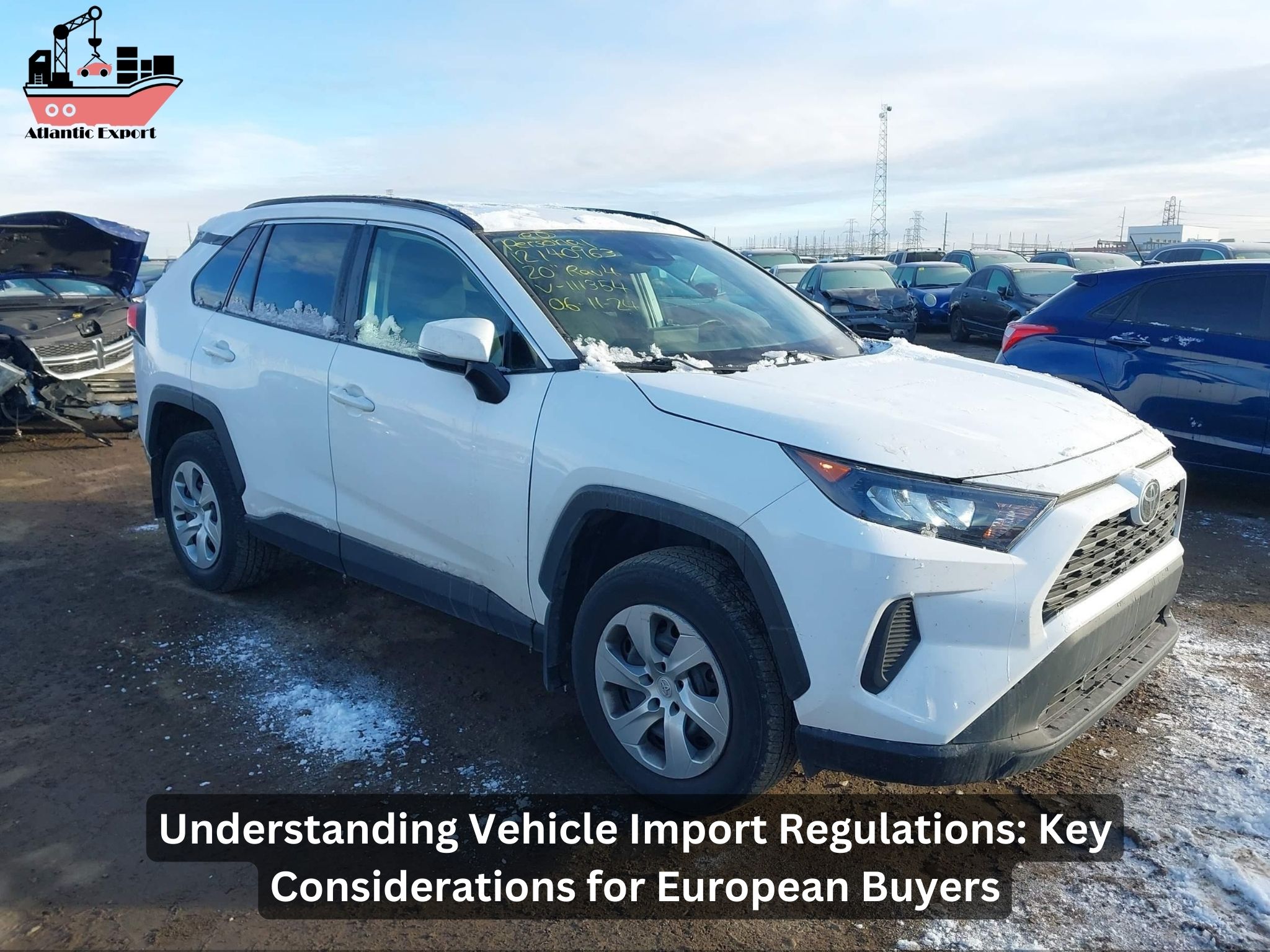The vehicle import industry is undergoing a transformative shift, driven by the adoption of cutting-edge technologies to streamline operations, improve efficiency, and enhance customer satisfaction. In a competitive landscape where automotive businesses must meet complex customs regulations, optimize supply chain management, and ensure compliance with international trade agreements, adopting digital solutions is no longer optional—it’s a necessity. This article explores how advancements like digital twin technology, cloud-based systems, and data analytics are revolutionizing import management processes, providing businesses with a competitive edge in the global trade market.
The Importance of Technology in Vehicle Import Processes
Efficient vehicle import management requires seamless coordination across multiple stakeholders, including manufacturers, dealers, customs brokers, and logistics providers. Traditional methods of managing these business processes often result in delays, inaccuracies, and increased costs. However, technology has introduced tools that improve operational efficiency, enable real-time data sharing, and optimize inventory management.
By leveraging advanced management systems like Microsoft Dynamics 365 (A365) and integrating IoT devices into the process, businesses can achieve:
- Enhanced customs clearance efficiency, reducing processing times.
- Better supply chain visibility, leading to improved decision-making.
- Reduced downtime through predictive maintenance.
- Improved fleet management efficiency, ensuring timely deliveries.
Digital Twin Technology: A Game-Changer in the Automotive Sector
One of the most revolutionary technologies reshaping the automotive import industry is digital twin technology. This innovation allows businesses to create a virtual replica of a physical vehicle, enabling simulations and predictive analysis before the vehicle even arrives at its destination.
Benefits of Digital Twins in Vehicle Import Processes:
- Operational Efficiency: Simulating logistics and supply chain scenarios to minimize delays.
- Predictive Maintenance: Identifying potential maintenance issues ahead of time to reduce downtime.
- Customization: Tailoring vehicles to meet specific customer requirements by analyzing data from the digital model.
- Cost Reduction: Lowering expenses associated with production errors and supply chain disruptions.
Streamlining Supply Chain Management with Automation
The integration of automation into supply chain management has significantly improved the speed and reliability of import-export operations. From inventory management to last-mile deliveries, automated systems provide businesses with real-time updates and reduce human error.
Automation Tools Transforming the Industry:
- ERP Systems: Enterprise resource planning tools like A365 enable seamless coordination of manufacturing, logistics, and sales operations.
- IoT Devices: Connected sensors and devices provide real-time tracking of vehicles during transit, ensuring compliance with customs regulations.
- Machine Learning Algorithms: Predictive models analyze historical data to optimize supply chain processes and reduce costs.
By incorporating automation technologies, companies like AtlanticExport have enabled their clients to meet global trade demands more efficiently while ensuring adherence to international compliance standards.
Enhancing Customs Clearance Processes
One of the most critical steps in the vehicle import process is customs clearance. The complexities of navigating customs regulations can lead to delays and financial penalties. However, advanced customs clearance solutions are mitigating these challenges.
Technologies Driving Customs Clearance Efficiency:
- Data Analytics: By analyzing trade data, businesses can identify bottlenecks and streamline processes.
- Cloud-Based Systems: Secure platforms provide real-time updates on customs clearance status to all stakeholders.
- AI-Powered Tools: Automated systems ensure that documentation complies with varying international requirements, reducing errors.
At AtlanticExport, we understand the importance of fast and accurate customs clearance. Our tailored solutions not only ensure compliance but also improve customer satisfaction by reducing delays in vehicle delivery.
Leveraging Data Analytics for Competitive Edge
The ability to harness and interpret data is a game-changer for businesses operating in the automotive import sector. Data analytics tools provide actionable insights that drive decision-making, enhance performance, and optimize resources.
Applications of Data Analytics in Import Operations:
- Predictive Analysis: Anticipating market trends and demand to manage production and inventory.
- Lifecycle Management: Monitoring the lifecycle of imported vehicles to maximize their value.
- Supply Chain Optimization: Identifying inefficiencies and implementing corrective measures.
- Customer Insights: Understanding customer preferences to improve product offerings and services.
The Role of Microsoft Dynamics in Automotive Import Management
Microsoft Dynamics 365 has emerged as a leading platform for managing the complexities of automotive import operations. With its ability to integrate multiple business functions, Dynamics 365 offers unparalleled flexibility and scalability.
Features of Microsoft Dynamics for Import Management:
- End-to-End Visibility: Real-time tracking of shipments, inventory, and production schedules.
- Customization: Adapting the system to meet specific business needs.
- Data Integration: Combining data from various sources for holistic analysis.
- Performance Monitoring: Tracking KPIs to ensure continuous improvement.
Overcoming Challenges in the Automotive Import Industry
Despite technological advancements, businesses in the automotive sector face numerous challenges, including:
- Navigating complex trade agreements and customs regulations.
- Managing the high costs of compliance and logistics.
- Addressing the environmental impact of supply chain operations.
- Ensuring cybersecurity in a highly connected ecosystem.
By adopting digital technologies, companies can mitigate these challenges while staying ahead in a competitive market. At AtlanticExport, we provide innovative solutions to help businesses overcome these obstacles and achieve their goals.
How AtlanticExport Supports the Automotive Import Industry
As a leader in vehicle import management, AtlanticExport offers comprehensive solutions that address the unique needs of the automotive industry. From customs clearance to inventory management, we leverage the latest technologies to enhance efficiency, reduce costs, and improve customer satisfaction.
FAQs
1. What is digital twin technology, and how does it benefit vehicle imports?
Digital twin technology creates a virtual replica of a vehicle, enabling simulations and predictive analysis. This technology reduces costs, improves efficiency, and enhances customer satisfaction in the import process.
2. How can automation improve customs clearance processes?
Automation tools streamline customs clearance by ensuring compliance with regulations, reducing errors, and providing real-time updates on shipment status.
3. Why is data analytics important in the automotive import sector?
Data analytics provides actionable insights that optimize supply chain operations, improve customer satisfaction, and enhance decision-making.
4. How does Microsoft Dynamics 365 support vehicle import management?
Microsoft Dynamics 365 integrates various business functions, offering end-to-end visibility, real-time data sharing, and performance monitoring for enhanced operational efficiency.
5. How does AtlanticExport enhance vehicle import processes?
At AtlanticExport, we leverage advanced technologies like digital twins, automation, and data analytics to streamline vehicle import operations, reduce costs, and improve customs clearance efficiency.








